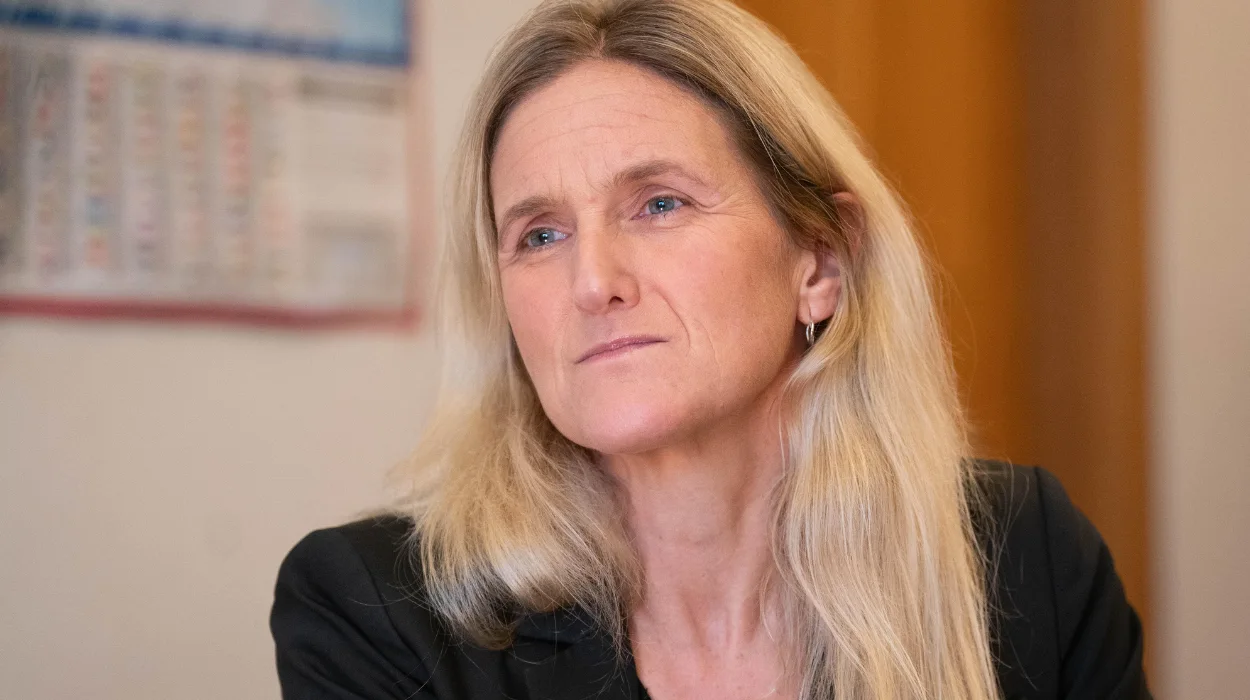UK (Parliament Politics Magazine) – Labour MP Kim Leadbeater’s proposed changes to the Assisted Dying Bill require doctors to discuss palliative care options with patients before assisted dying.
Ms Leadbeater has introduced amendments requiring doctors in England and Wales to first present palliative care and support options before discussing assisted dying, with parliamentary scrutiny beginning next week.
What changes has Kim Leadbeater proposed for the assisted dying bill?
Kim Leadbeater has urged MPs to refine and strengthen the proposed legislation to enhance its effectiveness. She has suggested many changes regarding the duties of doctors and the necessary training required for those providing the service.
Ms Leadebeater stated,
“It is extremely important to get the details of the legislation right and enhance it where necessary, particularly about safeguards, but we must also not lose sight of the fact that the current legal situation is unacceptable and deeply problematic.”
The changes include a requirement for medical staff to provide information on all available treatment and care options, such as palliative, hospice, and psychological assistance, before mentioning assisted dying.
As part of her amendments, medical professionals would need to compile a comprehensive report on each individual requesting assisted dying, including an assessment of mental capacity and possible coercion. Those providing assisted dying would undergo training on evaluating capacity and coercion detection.
Ms. Leadbeater’s proposal mandates that professionals in capacity and coercion, along with the Equality and Human Rights Commission (EHRC), be involved in the process before finalizing training and regulatory regulations.
What concerns and amendments are being discussed in the terminally ill adults bill?
A committee of MPs will review the Terminally Ill Adults Bill next week, which includes several changes proposed by Ms Leadbeater, based on suggestions from the government.
The amendments were drafted in discussion with ministers and officials from the Department of Health and the Ministry of Justice, but the government maintains a neutral stance on the bill.
Stephen Kinnock and Sarah Sackman, both ministers, will be part of the committee evaluating the bill.
Why did Kim Leadbeater propose changes to the assisted dying bill?
The proposed changes come after three days of testimony from experts, including England’s chief medical officer, Professor Sir Chris Whitty, and other medical and legal professionals.
Last week, nearly 50 witnesses appeared before the committee, with Mencap, a learning disability charity, raising concerns about how assisted dying would be discussed with patients.
Dan Scorer, the chief of policy and public affairs at Mencap, stated, “The way that initial conversation is initiated could be an extremely risky and dangerous moment for people with a learning disability who are terminally ill.”
What are the British Medical Association’s (BMA) views on proposed changes in assisted dying?
The British Medical Association stressed that doctors must be allowed to discuss assisted dying with patients if the proposed legislation is approved.
The association warned that prohibiting such discussions would be “an unacceptable intrusion of legislation into the privacy of the consulting room.”
What did Kim Leadbeater write in her letter to MPs regarding the Assisted Dying Bill?
Ms Leadbeater, in her letter to all MPs, insisted that the legislation must be “effective and legally solid in every regard.”
She stated,
“The government remains neutral but is responsible for the statute book. Officials have made technical changes to ensure the bill is workable and legally sound,”
adding,
“It is extremely important to get the legislation right and improve safeguards where needed. However, the current legal situation is deeply problematic, causing injustices to terminally ill people and their families.”
When could the assisted dying bill be fully scrutinized and implemented?
The bill will undergo line-by-line review from February 11, with further debate in the Commons likely to take place at the end of April.
Further scrutiny and votes in both the House of Commons and House of Lords will be required, making it unlikely for any legal changes to be passed until later this year.
Once the law is approved, it may take at least two more years for the assisted dying service to be operational.
Under the proposed bill, terminally ill adults in England and Wales, facing less than six months to live, may be legally allowed to end their lives with the approval of two doctors and a High Court judge.

